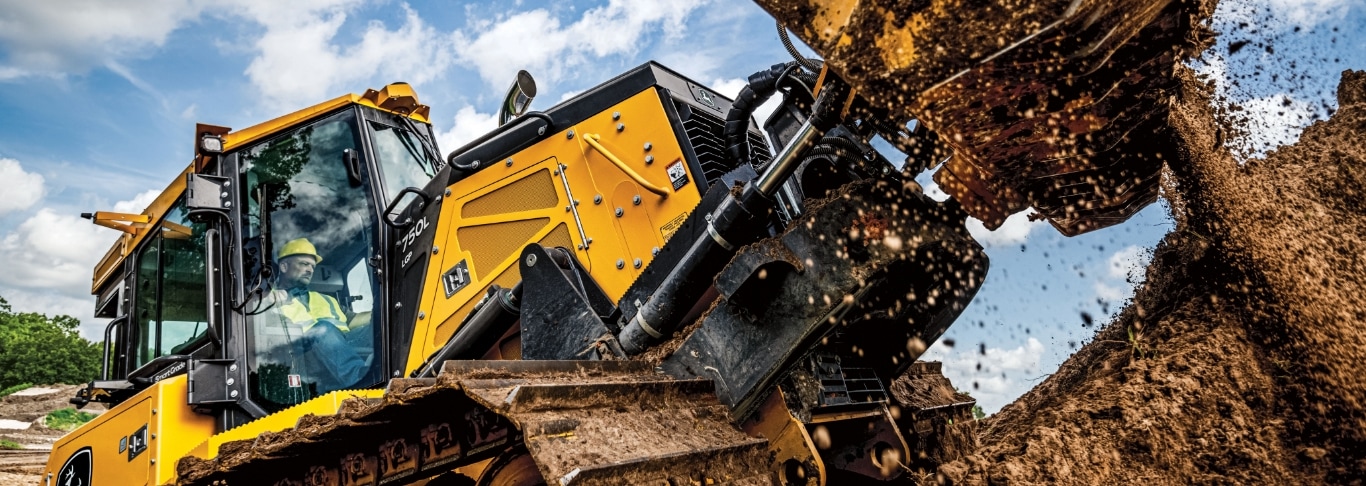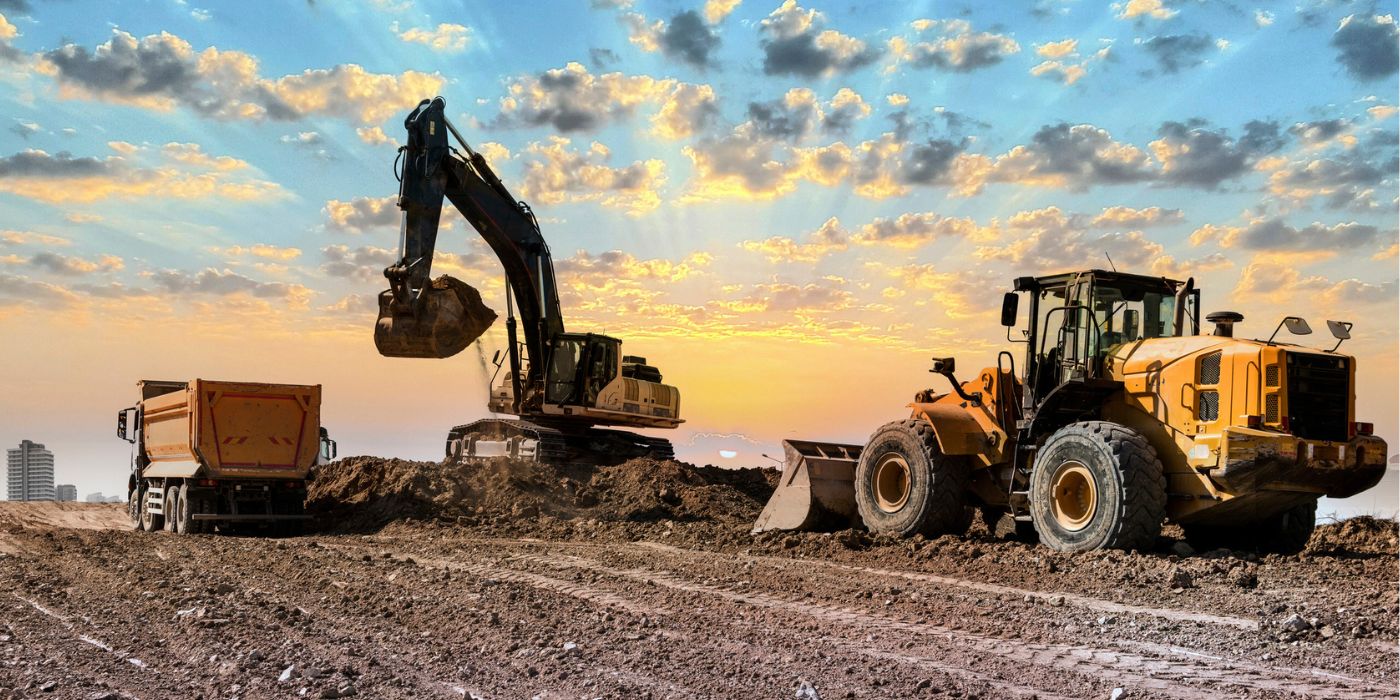Checking Out the Financial Advantages of Leasing Building And Construction Equipment Compared to Having It Long-Term
The decision in between renting out and owning building and construction devices is critical for monetary management in the sector. Leasing offers prompt price savings and operational adaptability, enabling companies to allocate sources much more efficiently. Recognizing these nuances is vital, especially when taking into consideration exactly how they align with details job needs and monetary techniques.

Cost Contrast: Renting Out Vs. Having
When examining the monetary implications of having versus renting building and construction devices, an extensive expense contrast is vital for making educated decisions. The choice in between renting and possessing can substantially impact a firm's bottom line, and understanding the linked costs is crucial.
Renting building and construction equipment normally entails lower in advance expenses, permitting businesses to allocate funding to various other functional demands. Rental costs can build up over time, possibly going beyond the expenditure of ownership if equipment is required for an extended period.
On the other hand, possessing construction equipment requires a significant first investment, along with recurring prices such as funding, insurance coverage, and depreciation. While ownership can result in long-lasting cost savings, it likewise locks up funding and may not provide the same degree of adaptability as renting. Furthermore, possessing tools demands a dedication to its use, which may not always straighten with job demands.
Eventually, the decision to have or rent should be based upon a detailed analysis of specific task demands, monetary capacity, and lasting critical goals.

Maintenance Responsibilities and expenses
The selection between having and renting construction equipment not just entails economic factors to consider yet likewise includes ongoing upkeep expenditures and obligations. Having equipment calls for a considerable commitment to its maintenance, that includes routine evaluations, repairs, and possible upgrades. These duties can swiftly build up, causing unanticipated expenses that can stress a budget plan.
On the other hand, when renting out devices, maintenance is typically the duty of the rental business. This setup enables professionals to stay clear of the monetary concern connected with deterioration, as well as the logistical difficulties of scheduling repair services. Rental arrangements typically include arrangements for maintenance, indicating that professionals can concentrate on completing jobs instead of stressing over equipment problem.
Moreover, the varied array of devices readily available for rent allows companies to pick the newest versions with advanced innovation, which can boost efficiency and efficiency - scissor lift rental in Tuscaloosa, AL. By going with leasings, services can avoid the lasting liability of devices devaluation and the linked maintenance headaches. Eventually, reviewing maintenance costs and duties is important for making an educated decision about whether to possess or rent building devices, significantly impacting overall job expenses and functional performance

Devaluation Effect On Ownership

A significant variable to take into consideration in the choice to possess construction equipment is the effect of depreciation on overall ownership expenses. Depreciation stands for the decline in worth of the tools with time, influenced by elements such as use, damage, and advancements in technology. As devices ages, Get More Info its market worth lessens, which can considerably impact the owner's monetary setting when it comes time to offer production rental companies or trade the devices.
For building companies, this devaluation can translate to significant losses if the devices is not used to its fullest possibility or if it lapses. Proprietors need to account for devaluation in their monetary estimates, which can result in greater general costs contrasted to leasing. In addition, the tax obligation implications of devaluation can be complex; while it might offer some tax obligation benefits, these are typically offset by the fact of reduced resale worth.
Ultimately, the worry of depreciation stresses the significance of recognizing the long-term economic commitment associated with having construction devices. Firms should meticulously assess just how frequently they will certainly make use of the equipment and the prospective monetary influence of depreciation to make an educated choice about ownership versus leasing.
Economic Flexibility of Leasing
Renting out construction equipment uses significant monetary versatility, permitting companies to assign resources extra successfully. This adaptability is especially critical in an industry characterized by fluctuating job needs and differing work. By deciding to rent out, businesses can avoid the considerable funding investment needed for acquiring equipment, preserving cash flow for other operational needs.
Additionally, renting equipment allows companies to tailor their equipment choices to specific project needs without the long-term dedication related to possession. This suggests that organizations can conveniently scale their tools stock up or down based upon present and anticipated project needs. Consequently, this adaptability lowers the threat of over-investment in machinery that may become underutilized or out-of-date with additional reading time.
One more monetary advantage of renting is the potential for tax obligation advantages. Rental settlements are usually taken into consideration operating costs, permitting instant tax reductions, unlike devaluation on owned tools, which is spread out over several years. scissor lift rental in Tuscaloosa, AL. This prompt cost recognition can further enhance a company's cash money setting
Long-Term Project Factors To Consider
When reviewing the long-term requirements of a building and construction business, the decision between renting out and possessing devices ends up being extra intricate. For projects with extended timelines, purchasing devices might seem beneficial due to the capacity for reduced general expenses.
In addition, technical innovations pose a significant consideration. The construction industry is developing swiftly, with brand-new equipment offering improved performance and safety and security attributes. Renting permits companies to access the most up to date innovation without devoting to the high upfront costs associated with acquiring. This versatility is particularly advantageous for companies that handle varied tasks needing various kinds of tools.
Furthermore, economic stability plays a crucial duty. Having equipment commonly involves significant capital expense and devaluation issues, while renting out enables for more foreseeable budgeting and cash circulation. Ultimately, the selection between possessing and renting must be aligned with the calculated objectives of the building and construction company, taking right into account both current and expected task demands.
Final Thought
To conclude, leasing building and construction devices supplies substantial monetary benefits over long-term ownership. The decreased upfront costs, removal of upkeep responsibilities, and avoidance of depreciation add to improved capital and monetary flexibility. scissor lift rental in Tuscaloosa, AL. In addition, rental settlements offer as prompt tax reductions, additionally benefiting professionals. Inevitably, the decision to lease rather than very own aligns with the dynamic nature of construction jobs, enabling flexibility and access to the current devices without the monetary problems related to possession.
As tools ages, its market worth reduces, which can significantly influence the proprietor's financial placement when it comes time to sell or trade the tools.
Leasing building equipment offers substantial economic versatility, allowing companies to assign resources extra successfully.Furthermore, renting tools makes it possible for business to tailor their tools options to specific task demands without the long-term dedication connected with ownership.In verdict, leasing construction tools provides substantial monetary advantages over lasting ownership. Inevitably, the decision to rent instead than own aligns with the dynamic nature of construction projects, allowing for versatility and access to the most recent equipment without the economic concerns linked with ownership.